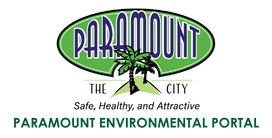Total Coliforms are a group of bacteria that are ever-present in the environment. They are commonly found in plant material and soil and are easy to identify. Most coliform bacteria do not cause disease. Because testing for them is simple and inexpensive, they are used as indicator organisms to evaluate the effectiveness of treatment and assess the integrity of the distribution system. Their presence is a signal of possible treatment issues, which is why resampling is required.
However, like all microbial tests, there is the opportunity to observe what are known as false positive results. A false positive means that something in the actual test did not perform correctly, resulting in the positive presence of Total Coliform when none were actually present. This is a rare event, but nonetheless it does occasionally occur. A positive result can also occur because an environmental factor such as rain or wind contaminated the sample as opposed to there actually being contamination in the water supply. The reason to perform the resampling is to confirm if the contamination is real and ongoing. Negative resample results indicate the water system is in compliance and safe.


Comments are closed.